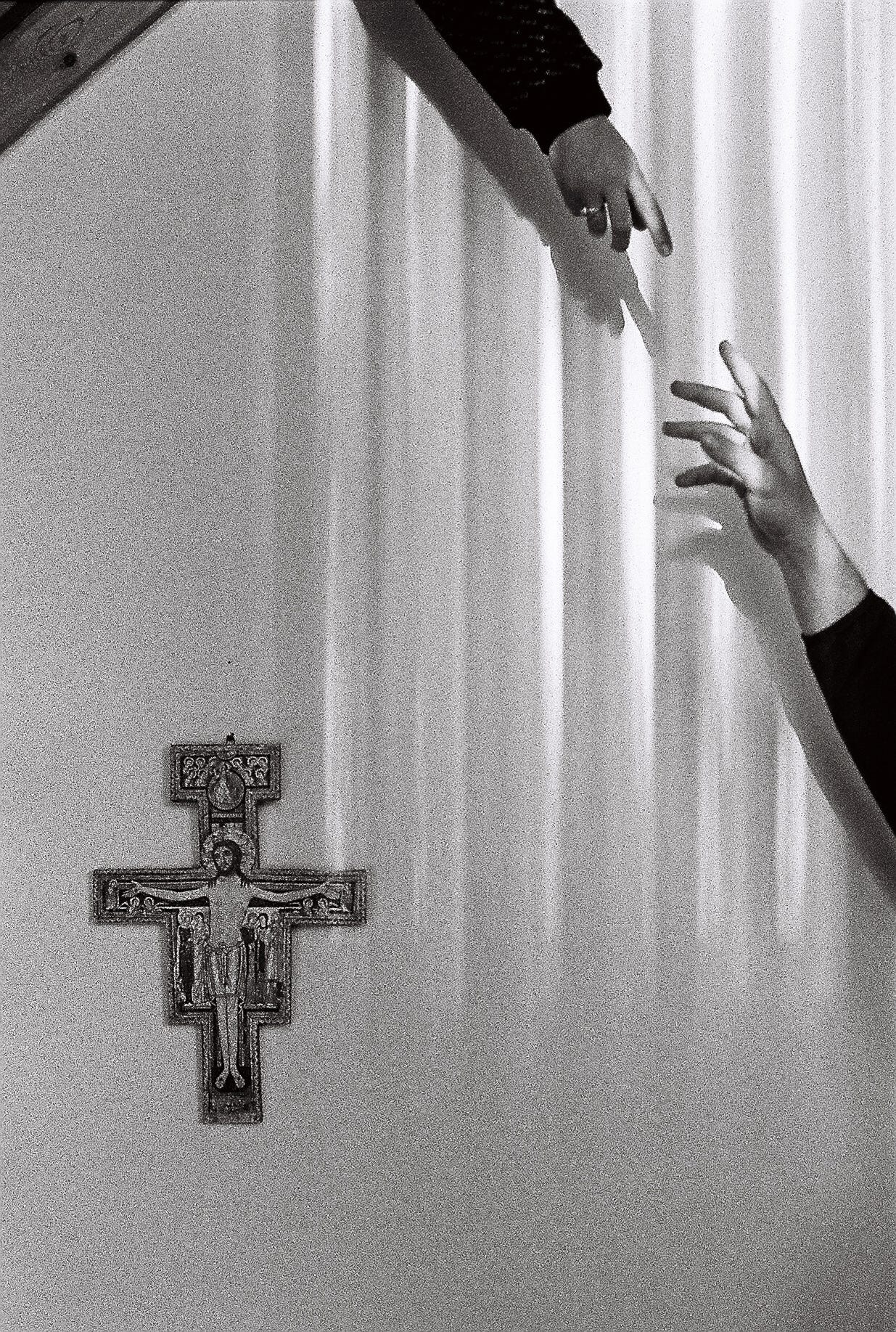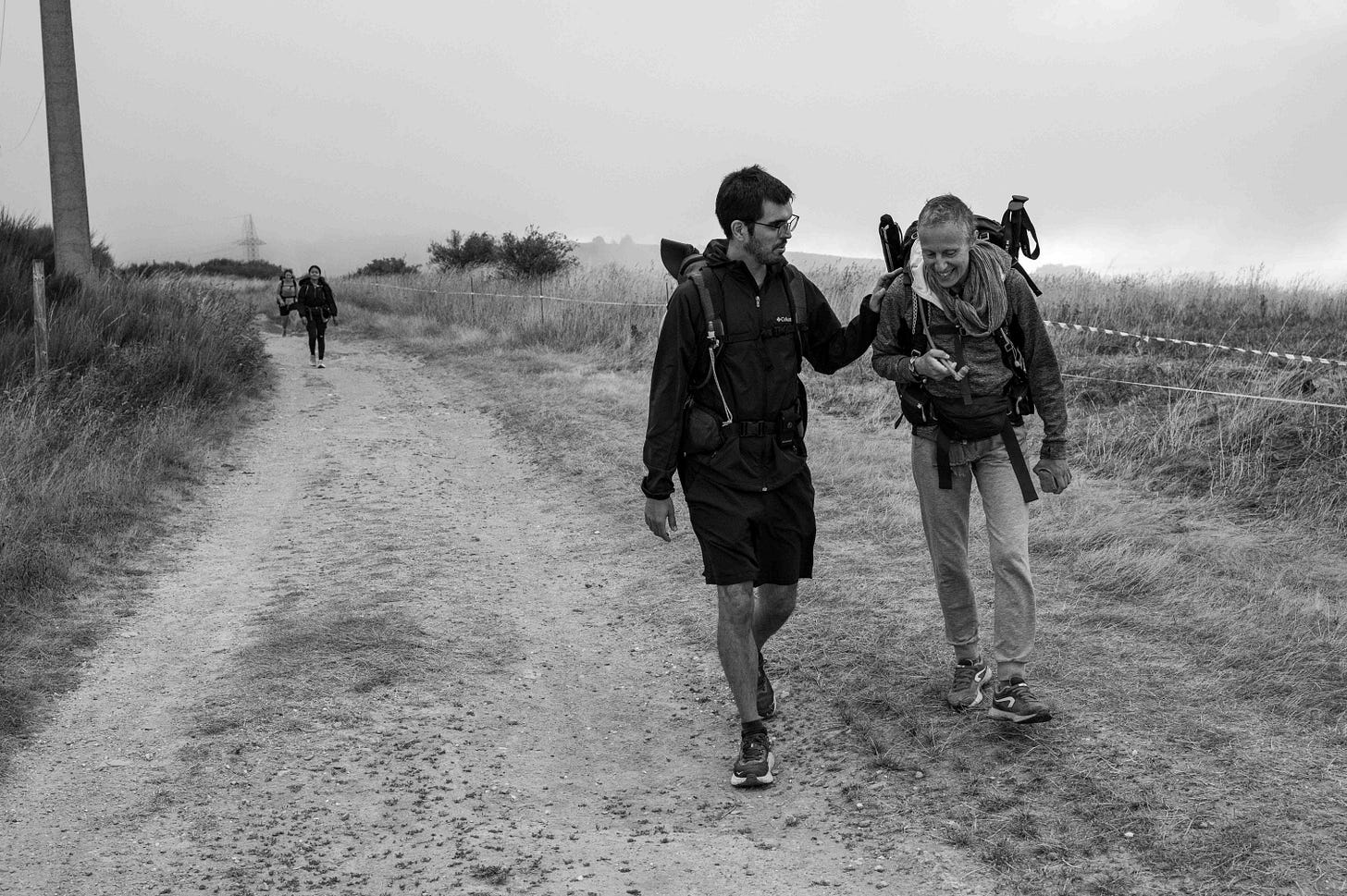My fellow pilgrims,
Amidst all the adventures and office work I mentioned in my last newsletter, I was able to write a few articles for my local archdiocesan magazine, the Denver Catholic. Two were typical works of journalism (that horrible practice), and not that interesting, but one was an essay about what it means to be a “pilgrim of hope” in this jubilee year (which is themed around that idea). You can read Pope Francis’s papal bull to get a more complete picture of what that means for the whole Church. My essay, written as a compliment to another about the history of Christian pilgrimage, is a meditation on the necessity of hope as a pilgrim. I have, since writing it, become increasingly aware of its necessity beyond pilgrimage as well. It is a virtue for all seasons, in victory, defeat, and the smallest battles in between; so may God grant us hope in abundance.
The official publication in the Denver Catholic is here, and I’ve copied a slightly different version into this post. I hope you enjoy it.
Pilgrims of Hope
“Whatever our state of life, we cannot live without these three dispositions of the soul, namely, to believe, to hope and to love” - St Augustine
Could there be any other kind of pilgrim but a pilgrim of hope? I do not believe so. What, except hope, is the mysterious pull on the pilgrim towards his goal? What is the blood in his veins, the light in his hand, the aid to push on to his journey’s end, if not hope? It is the one true currency of this tradesman of the trails, the unassuming waybread of the wanderer, and if it were not given to simultaneously pull and push him on through the worst of days he would never make it to the end. The pilgrim cannot go on without hope. He might not even be able to start.
I’ve walked many miles as a Creatio missionary guide, leading many pilgrimages, and each and every time I knew that I could make it to my goal. I knew that one way or another I’d make it through and the need to push through tired feet and sore muscles would end on the steps of whatever church I was walking to. But I could not conjure up hope for my own salvation. I had hope on a pilgrimage. It’s much harder to have hope on the pilgrimage.
The Church understands hope both as a basic appetite, and as an infused virtue; the former being something like an emotion, that may or may not spur us on to the hoped-for thing, and the latter being a Divine gift by which we respond to what we know of God’s goodness. To the extent that hope is that natural appetite, it lives within the realm of natural possibility. To the extent that it is the true, highest, theological Hope, it can bring us beyond what is natural and into the infinite, brilliant promises of God.
That hope that is given is absolutely necessary if we’re going to be brought beyond our limited, fallen nature.
Sometime last year, on a long walk through Spain, I met a man I’ll call Lawrence (name changed). Lawrence was a good man, and in many ways a great participant to have on a Creatio trip. However, he hardly participated in group activities and seemed to shy away from engaging with the spiritual parts of the trip (prayer, mass, formation talks, etc). One day, about midway through the trip, I thought it best to stick with him for the morning. Conversation was fine for a while, but light, and eventually hit a wall that, despite our physical motion forward, was quite clearly standing in the way between us and Santiago de Compostela, our end goal. Lawrence slowly, yet frankly, revealed that he was mired in his attachment to a particular recurring sin, one that many if not most young men struggle with these days. In his despair, he could hardly see a way to engage with what he knew to be good and true in the Faith. Countless confessions, prayers, techniques, and tears later, he had not shaken off the chains in the slightest and made it quite clear that he saw no way it would ever happen when he said he’d mostly stopped going back for God’s apparently endless but impotent mercy. He later said he and didn’t “know if [he] even believe[d] any of this stuff.” On that day, with many miles behind us but many more to go, I found myself walking next to a pilgrim without hope.
What followed from that moment was one of my more dramatic moments as a missionary guide, and whether it has truly borne fruit for him, only God knows. Regardless, it was my honest attempt to speak to someone in a position I had found myself in many times before. I practically yelled at him. Facing down this despair, finally from the outside rather than within, I broke out in a kind of passion I had scarcely expressed before, and by the grace of God, it managed to come out in a manner that stirred up the beginnings of true hope in each of us.
The particulars of what I said ranged from an expression of brotherhood in the struggle to helpful resources but ultimately crescendoed into the only thing that actually matters: Christ meant all that He said, has the power to achieve it, and is therefore the supreme and transcendent hope of every single solitary human being from the holiest to the most depraved.
Lawrence, for all his sin and struggle, desolation and despair, was still walking the Camino. He was still called ever onwards and upwards by Christ, his king and redeemer, and so was I. After tasting even just a moment of that Hope, which both of us often struggled to see in our meager faith, he made it to the cathedral in Santiago with a joy he had not had at the beginning; a joy which brought him straight to both the confession and communion lines for the first time in months. Many people make it to the cathedral plaza, and that’s the physical end, but our pilgrimage ends in Christ, and Lawrence would not have gotten there without Hope. He would not have gotten there wallowing in that strange, sad mix of shame, disbelief, and despair in which the limits of his natural strength - and natural hope - had left him.
This year I have no doubt there will be many who visit Rome and walk through the Jubilee doors on a whim, without knowing what they are doing. Our churches and holy sites are filled with the spirit of tourism and have been for a long time. But once again I do not think there is any such thing as a pilgrim without hope - not a true pilgrim, at least. The Christian does not make it to his destination without hope, even just the smallest morsel of it. It is absolutely and utterly necessary for the journey no matter his physical effort. How would he even know where he was going without it? Human hope can get you to Rome. It can get you lots of places, and can sustain you for most accomplishments in this world. But it cannot get you any farther, it cannot bring you beyond guilt, beyond despair, beyond your nature, and beyond Death to the heights of holiness, to the joy and glory of the saints.
If we are to be “pilgrims of hope” this Jubilee year, it must be that highest hope. We must have the kind of hope that sees beyond the end of the year’s pilgrimage, to the glorious, shining destination of the pilgrimage; the house of the Father, the Promised Land, our home. We, who by the grace of God have tasted even the smallest bit of final victory, know there is no true Christian pilgrim without hope.
in statu viae, in spe
Ryan






👏🏼👏🏼👏🏼 what a word